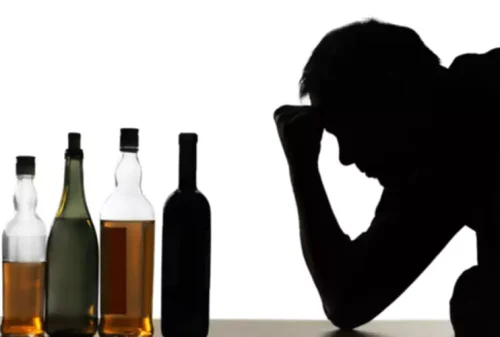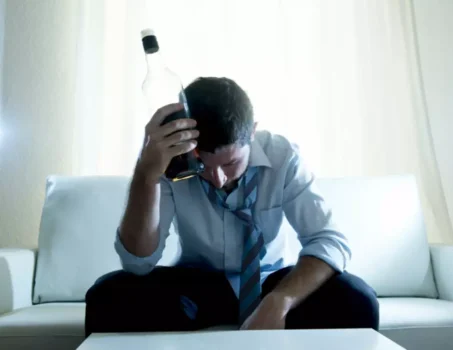
If you have a strong support network of friends, family, and professionals who can help you maintain your chosen approach, either option may be viable. However, if you lack a supportive environment or are surrounded by individuals who engage in the addictive behavior, abstinence may be more challenging controlled drinking vs abstinence to maintain. In such cases, you may need to reevaluate your environment and relationships, ensuring that they are conducive to your recovery goals. You have experienced enough consequences in your day-to-day life that nobody needs to tell you that they are tired of your addictive behavior.
Mindfulness Meditation: Effective Treatment Strategy or Pop …

By choosing abstinence, you are making a firm commitment to stop indulging in the addictive behavior, no matter the circumstances or the intensity of your cravings. To be honest, people make no secret of the fact that moderation management is not the only way to take moderation into account. As it may seem as if it is somewhat of a strange expression, some believe alcoholics and people who abuse substances can be tolerable (temperance) yet still consume alcoholic beverages or use drugs every so often.

Stopping Overdose with “Rescue Drugs”
- Perhaps the most notable gap identified by this review is the dearth of research empirically evaluating the effectiveness of nonabstinence approaches for DUD treatment.
- In some cases, a combined approach incorporating elements of both abstinence and moderation may be the most effective path to recovery.
- When your drinking is under control, you may have the internal bandwidth to accept the professional psychological support that can help you develop healthier ways of coping.
Incorporating activities such as exercise, self-care, therapy with Lantana Recovery specialists in Columbia, meditation, and spending time with positive people can help individuals feel better and more in control of their cravings. They not only had a greater reduction in drinking days per week (about 3 days per week by the end of the treatment period). Also interesting that, as the study authors point out, all groups improved https://ecosoberhouse.com/article/does-alcohol-dehydrate-you/ to varying degrees particularly in terms of fewer drinks per drinking day. By providing you with a comprehensive understanding of these two approaches, I hope to empower you to take control of your life and find the most suitable path to recovery. Simply put, those who want to learn to drink in moderation are less likely to achieve their goal, while those who set a goal of quitting drinking entirely see greater success.
Treatment for Opiate Addiction: One-on-one vs. Group Therapy
The evaluation consists of 11 yes or no questions that are intended to be used as an informational tool to assess the severity and probability of a substance use disorder. The test is free, confidential, and no personal information is needed to receive the result. The thing is that the amount of alcohol or drug use per se is not a part of the definition of addiction or abuse (other than in the “using more than intended” factor but even there an absolute amount isn’t introduced) and I don’t think it should be a necessary part of the solution either. Resources such as SAMHSA’s National Helpline, aftercare support groups, and mutual help organizations like Alcoholics Anonymous (AA) and Narcotics Anonymous (NA) can provide invaluable support for those in recovery. These resources offer a secure and encouraging atmosphere to share stories, gain inspiration from others in similar circumstances, and foster a sense of community and responsibility in maintaining long-term sobriety.
- Smarmore Castle has the facilities and staff to help you regain control of your life, request a call-back from one of our professionals today.
- If moderation treatment can help bring even some of those who are resistant to treatment, it’s worth it.
- On the other hand, moderation may be more suitable for those without a history of alcohol addiction or dependence, allowing them to enjoy the occasional drink without compromising their health.
- When out for a nice dinner or attending a get-together, she still wanted the freedom of having a drink or two.
- These individuals may be naturally finding ways in their environment to help them reduce or abstain (e.g., seeking social support), for example, or automatically using cognitive strategies to help them stick to limits on days they drink.
- Many individuals with an alcohol use disorder that wish to change their drinking, however, have a goal of moderation – sometimes referred to as “harm reduction” – rather than complete abstinence.

How do you decide between sobriety or moderation?
- After two or three drinks, problem drinkers may feel great, which encourages them to drink more.
- They have often attempted moderation and have not been successful, they know that their lives are better when they avoid using.
- Adi Jaffe, Ph.D., is a lecturer at UCLA and the CEO of IGNTD, an online company that produces podcasts and educational programs on mental health and addiction.
- I can’t even think of how many times I’ve heard the notion that complete, total, abstinence should be the only goal for all people who abuse drug or alcohol.
- The idea is to teach problem drinkers more responsible drinking habits so that they don’t devolve their habits into all-out alcoholism.

Leave A Comment